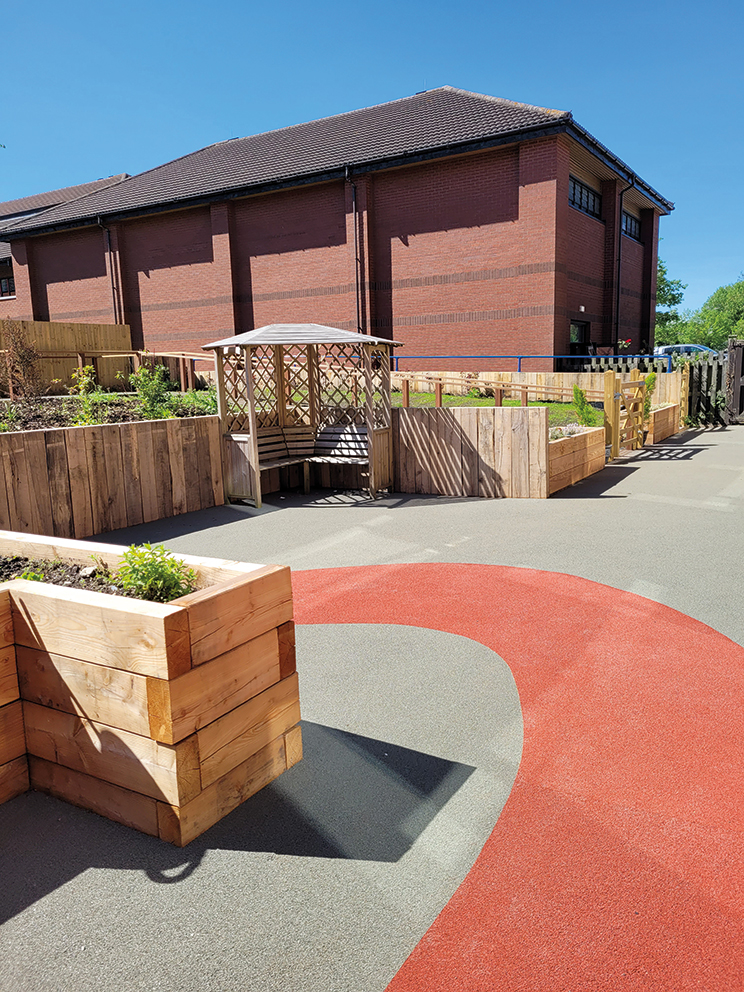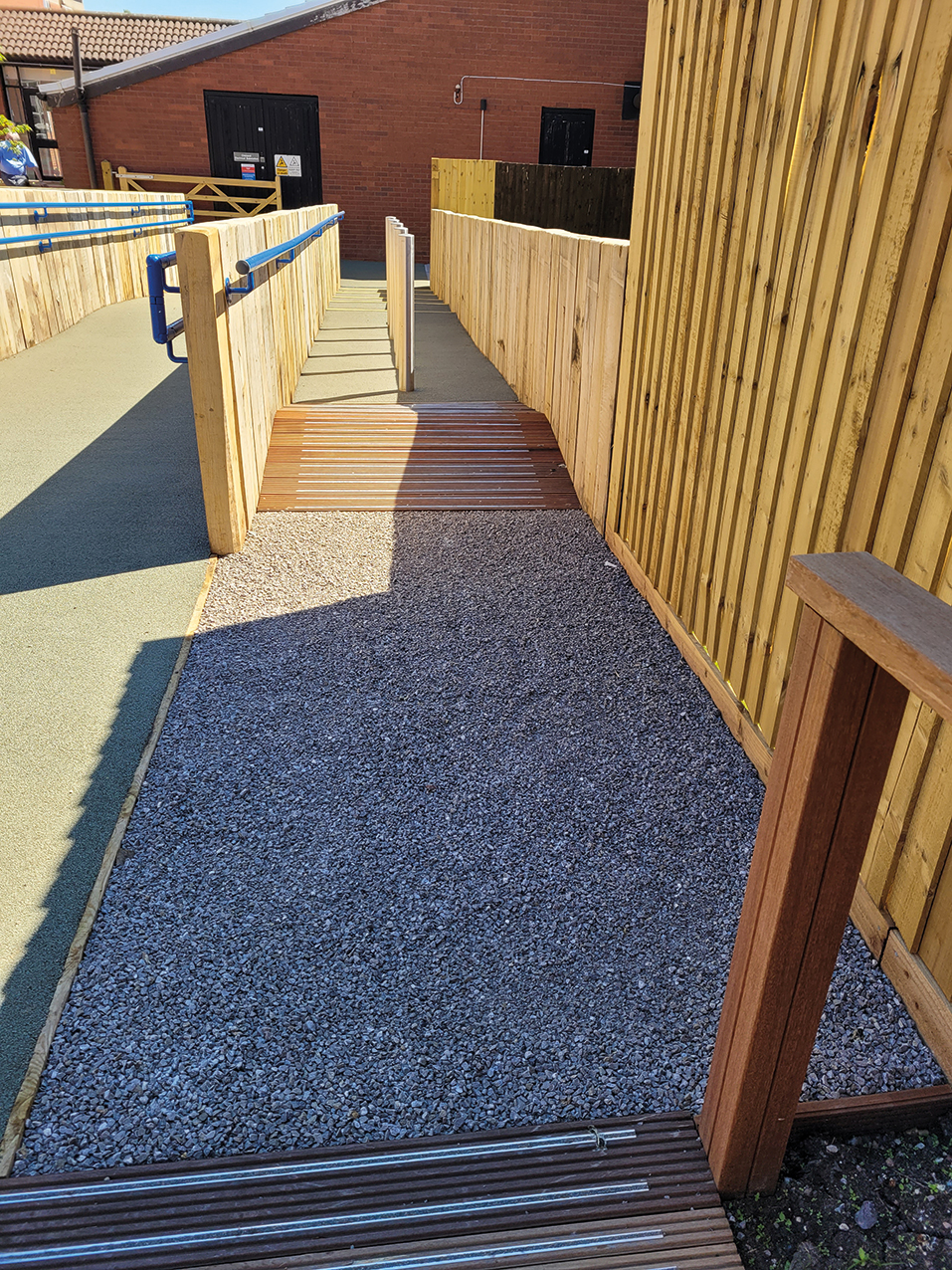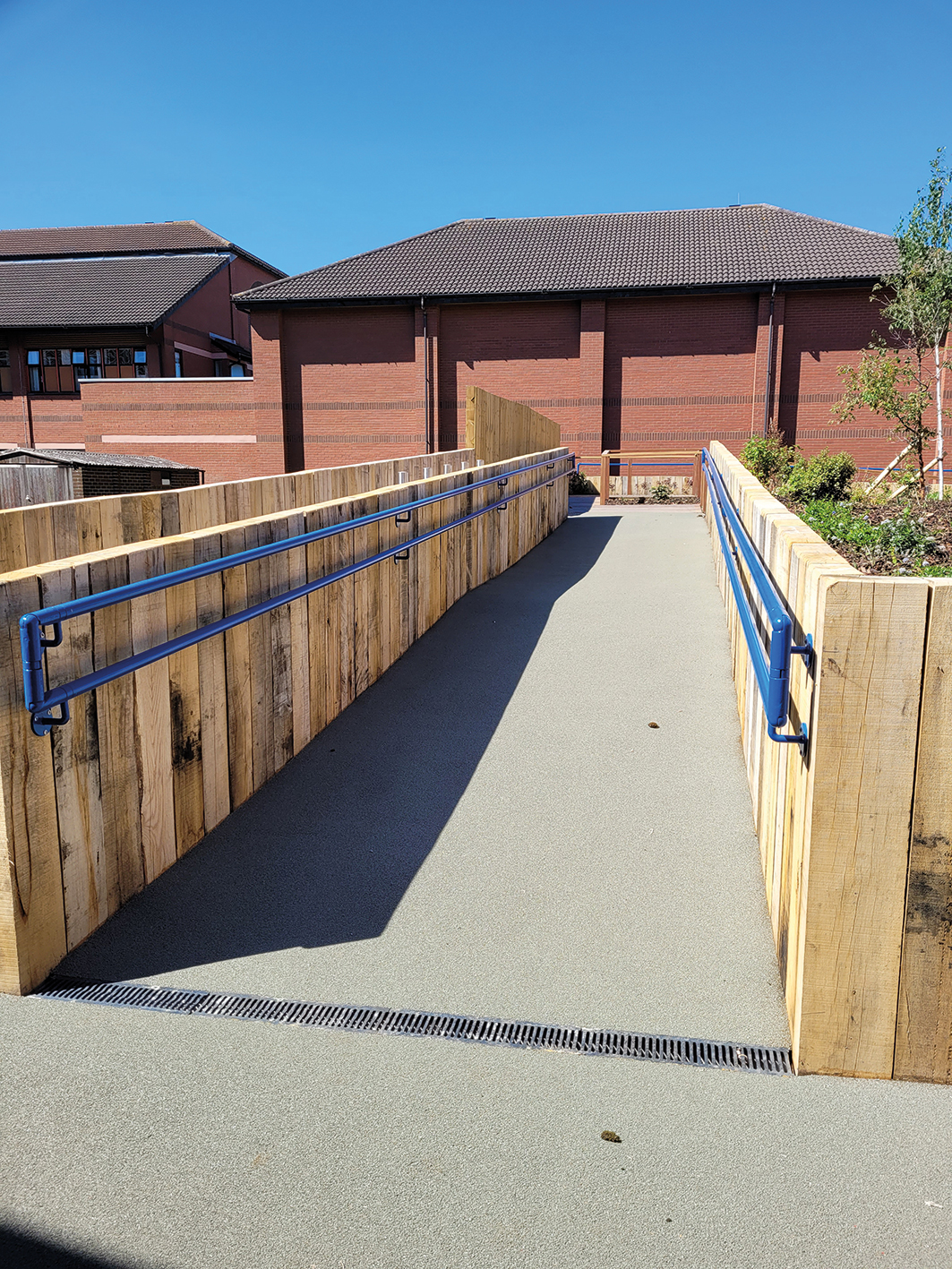
A new therapy garden has opened at George Eliot Hospital, enabling patients to transition from hospital to home
George Eliot Hospital in Nuneaton has opened a therapeutic new outdoor space for stroke and dementia patients.
Designed by Susan Simpson, Susan Condor, Katy Doncaster, and Christine Falconer from the Social and Horticulture Programme at Coventry University; The Serenity Garden will provide a much-needed outside area for patients, staff, and visitors to enjoy.
Using feedback from staff, patient focus groups, and service users with knowledge of stroke and dementia, the design team identified the types of outdoor challenges that patients have struggled with after leaving the hospital.
And The Serenity Garden enables them to experience these real-world challenges in a safe and controlled environment under the supervision of trained therapists and nursing staff.
Project lead at George Eliot Hospital NHS Trust, Shabina Khalifa, said: “The project was driven by clinical nursing staff who had this large disused courtyard full of dead plants and uneven flooring.
“They approached trust management and asked if we could give them a hand to turn the space into something therapeutic which patients could use and which could support treatment and recovery.
“We were then approached by Coventry University, which runs a therapy-led programme for occupational therapy staff that looks at outdoor spaces.
A sensory experience
“They were interested in using the space as part of the module and they designed the garden and did all the research on the best types of plants, the best surfaces, and how we might be able to support patients in their recovery.
“Once we had the design we held stakeholder meetings and came up with the final concept.”
The layout of the Serenity Garden is designed to enhance accessibility and manoeuvrability and to support patients who are bedbound or using a wheelchair.
The rehabilitation area offers patients the opportunity to navigate their way over steps or use a ramp, traverse around navigation poles, cross over a raised bridge, and walk over uneven gravel surfacing.
Patients can then make their way down to the new decking area which has a view of the newly-planted sensory garden and wild flower meadow.
Built by construction Fairways Contracting, it also supports patients living with dementia who reported that they would like an area where they could undertake activities such as gardening, pet therapy, and music and art workshops, as well as areas for relaxation and socialising.
This area incorporates new wheelchair-accessible raised flower beds arranged with a variety of specially-selected plants to stimulate the senses of sight, touch, sound, taste, and smell.
Designing for dementia
There is also a dementia-friendly pathway designed as an infinity loop to provide a sense of direction as patients wander through the area.
And a dining area and seating enable patients to sit outdoors and relax with friends and family.
Following completion of the first phase of the project, an all-weather lodge, funded by The League of Friends, is expected to be built by the end of the year to enable patients to receive art, music, pet and one-to-one therapies away from the ward area.
The lodge will be able to accommodate hospital beds, wheelchairs, and able-bodied patients and will be equipped with a selection of specialist equipment to aid muscle building, concentration, and fine motor skills.
Khalifa said: “Some patients with dementia or who have suffered a stroke have been on the ward for weeks or months and they really wanted somewhere where they could go outside and just sit and relax, or spend time with family outside of the clinical environment.
“And, for dementia patients, many have a love of gardening and being able to get outside and get involved will help to provoke memories and reduce stress.”
The garden has been funded entirely through charitable donations, including a £5,000 donation from healthcare shower manufacturer, Triton Showers.
David Tutton, managing director of Triton Showers, said: “As part of our commitment to support our local community, we were pleased to be able to back the Serenity Garden Project in its mission, which is important now more than ever.
“The garden will provide a much-needed facility to assist some of the inpatients that need it most, not only with rehabilitation, but also by providing a sensory experience and safe space to enjoy activities all year round.”

